Last Updated on April 3, 2018 by Heather Hart, ACSM EP, CSCS
I’m a big fan of quoting the principles of exercise around here. Specifically specificity, followed closely by progression, and let’s not forget recovery. Todays topic, “how to train for a 100 miler”, will focus heavily on the principle of individuality. In short, the principle of individuality means that everyone responds differently to training. Sure, the other six principles still hold true, we all require overload to improve, we all have a point of diminishing returns, etc., but the exact training load (miles, hours, pounds, whatever) vary wildly based on each individual, and their ability to positively tolerate and respond to said training. This is due to a number of factors, including genetics, age, gender, predominance of muscle fiber types, experience, environmental tolerance (how well do you do in the heat/cold/etc.), nutrition, current life circumstances (kids that don’t sleep, a job that stresses you out,) the color of your socks (I’m kidding about that one). The list goes on and on, but you get the point: while the guidelines of training typically remain the same, the specifics vary based greatly on the individual.
And that’s the reason why most coaches shake their head when someone asks “what’s the best training plan for ______ (insert desired race distance here)?” Because the answer is, there isn’t a “best” training plan. Of course, there are plenty that are BETTER than others. I’d look more highly at a plan that incorporates varying workouts of long runs, short runs, easy effort days, speed work, cross training, etc. over “let’s just cram in as many miles a week as we can” plans, but still, it boils down to how each unique individual responds to their training.
So that brings us to the topic at hand: how to train for a 100 miler.

The number one question people always asked me when I told them that I was training for a hundred mile race was of course, “why?” No doubt, I understand the dismay and confusion. But the number two question that almost always immediately followed was “how does one even begin to train to run 100 miles?” And the answer?
Very carefully.
I’m far from an expert in this category, but I like to run, I like to write, and I’ve certainly had my share of trial and error when it comes to the 100 mile distance. So here is the little bit of knowledge I have to impart on you today:
How to Train for a 100 Miler:
Weekly mileage is very individual.
When it comes to marathon training, I have friends that are wildly successful on minimal weekly mileage. Then I have friends who are still incredibly fast, but have to fight for that speed by consistently throwing down 70+ mile weeks. Of course this difference in training approaches carries over to ultra training, but in an even bigger way.
For me, it was a constant balancing act to push my weekly mileage, without injuring myself or burning out. And then on top of that was the balancing act of finding how many hours a week I could realistically dedicate to running and training. There were a number of times my longer runs got cut short (a 30 miler turned into a 26 miler, etc.) because there just wasn’t enough time.
And it takes a lot of time to train for a 100 miler.
While I’m really darn close to calling running my career (and not because I’m fast), the fact is I still have a job to show up at, clients to train, kids to feed and chauffer, etc. Real life has to come first.
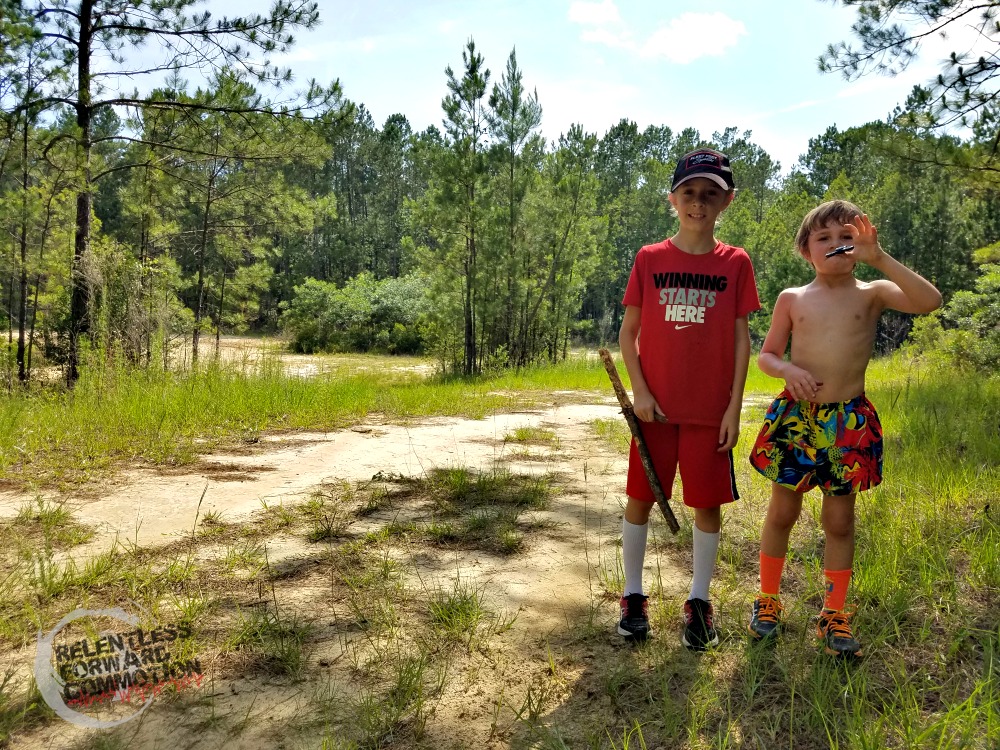
Real-life kids.
The point is, some people can successfully train for a 100 miler running multiple 90, 100, 110 mile weeks. Others can successfully train for and finish a 100 miler maxing out at round 50 or 60 mile weeks. It’s about finding what works for you. (For the record, and because people like concrete numbers even though you tell them it doesn’t necessarily matter… for both my 100 miler and my 84 mile/24 hour race this spring, I maxed out at just about 80 miles for my longest weeks.)
What I’ve found matters more when it comes to finishing a 100 miler rather than the number of training miles logged are the next few points:
Nutrition is a deal breaker.
I’m pretty sure everyone reading this post right now can agree, 100 miles is a really freaking long way to run. You can fuel a lot of races on sheer will power and luck, but not 100 miles…you need calories. Lots of calories. And further, you need to time those calories just right. The strongest runners in the world will not be successful at this distance without a decent nutrition plan. And while a nutrition plan alone won’t get you to the finish line, a bad nutrition plan (or no nutrition plan at all) is almost always a recipe for a DNF. I’ve experienced it myself, I’ve seen it happen to friends, and you hear about it from other ultra runners all of the time.
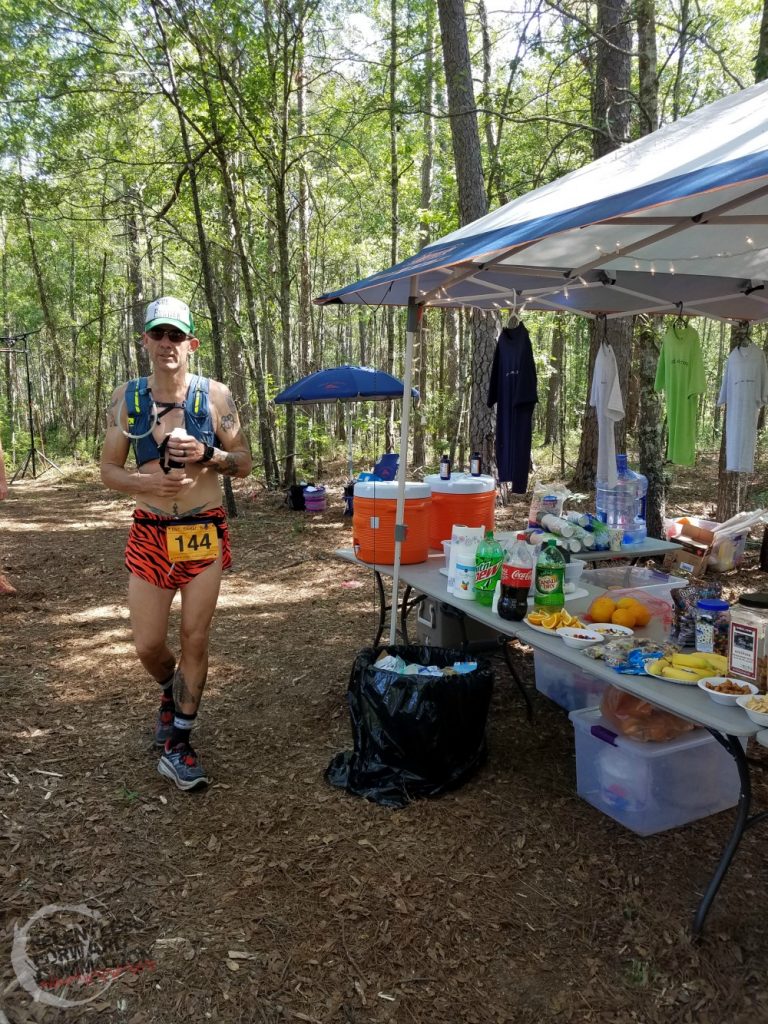
Ultra buffets are the best.
In other words, when it comes to training for a 100 miler, the number of miles you log during training is only half the battle. Figure out how to fuel, which again, is another very individual thing. Then figure out when to fuel, how often to fuel, what to do when you no longer want to fuel, how to get other people to make you fuel when you suddenly hate fuel…etc. Have a plan, have a backup plan, and PRACTICE during your training.
A lot of it is mental.
Here’s where we insert one of those Pinterest worthy quotes about “your legs will give up long before your heart does” or something like that. 100 miles hurts, I’ve yet to meet a person who doesn’t agree. Our bodies are designed to use pain as a signal to our brain to stop whatever we are doing before we do serious damage to ourselves. So it’s no wonder that we are conditioned to think “this hurts, I should quit.” But you can’t. You learn to push through the discomfort, push through the pain (though hopefully nothing too severe).
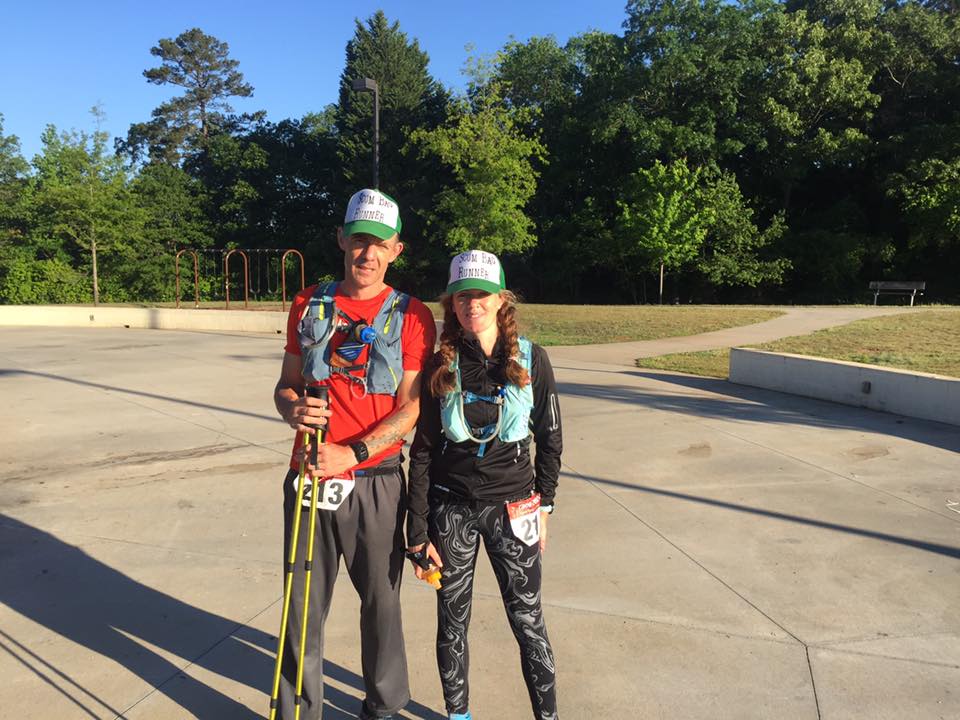
Taken at about 95 miles, the exhausted smile on my face hides the “this is probably the stupidest idea I’ve ever had, can I please amputate my feet now” feelings I had going on inside.
In all of my longer distance ultras, I’ve gone through a roller coaster of emotions. One mile I’m flying on top of the world, the next mile I’m in tears, loathing the day I ever decided this “running thing” was a good idea. For me personally, those lows almost always boil down to nutrition (see above). I’ve learned that addressing the low ASAP almost always makes me come out of it.
In short (who am I kidding, nothing about this post has been short) your mind might give you 100 reasons to quit during a 100 miler. But you have to learn to push past those negative thoughts, and you have to remember that the “lows” pass, and another “high” is almost always around the corner. How did I progress from a 50 miler to a 100K, to 84 miles, to 100 miles? By constantly repeating to myself over and over and over that I can and would do it. And eventually, I did.
But you still need to run.
I know I’ve just rambled on about how nutrition and a strong mental game are integral in running ultras…but you still have to train. You can’t fake a 100 miler. Just putting that reminder out there.
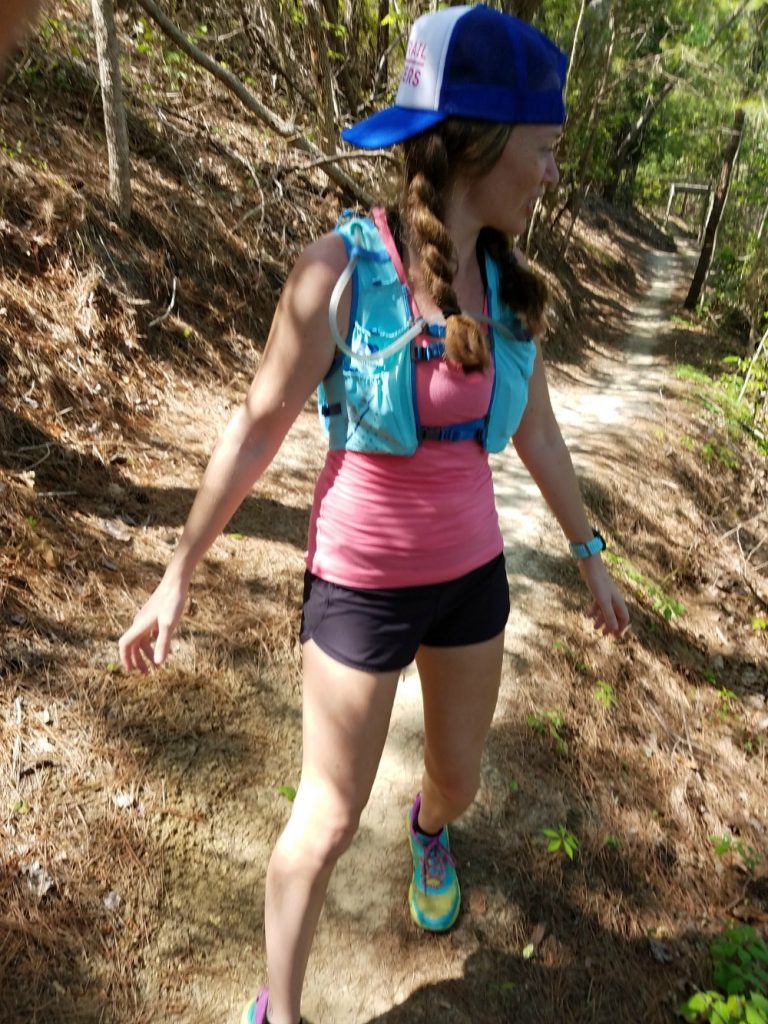
Train, train, train.
Experience is EVERYTHING (besides all of those other things, of course).
My first ultra, a 100 mile attempt that ended at 50 miles, was a schooling in the world of ultra running in the form of a physical beat down on a very difficult course. I had NO IDEA what I was doing, but very quickly learned that this world was a whole different beat of running.
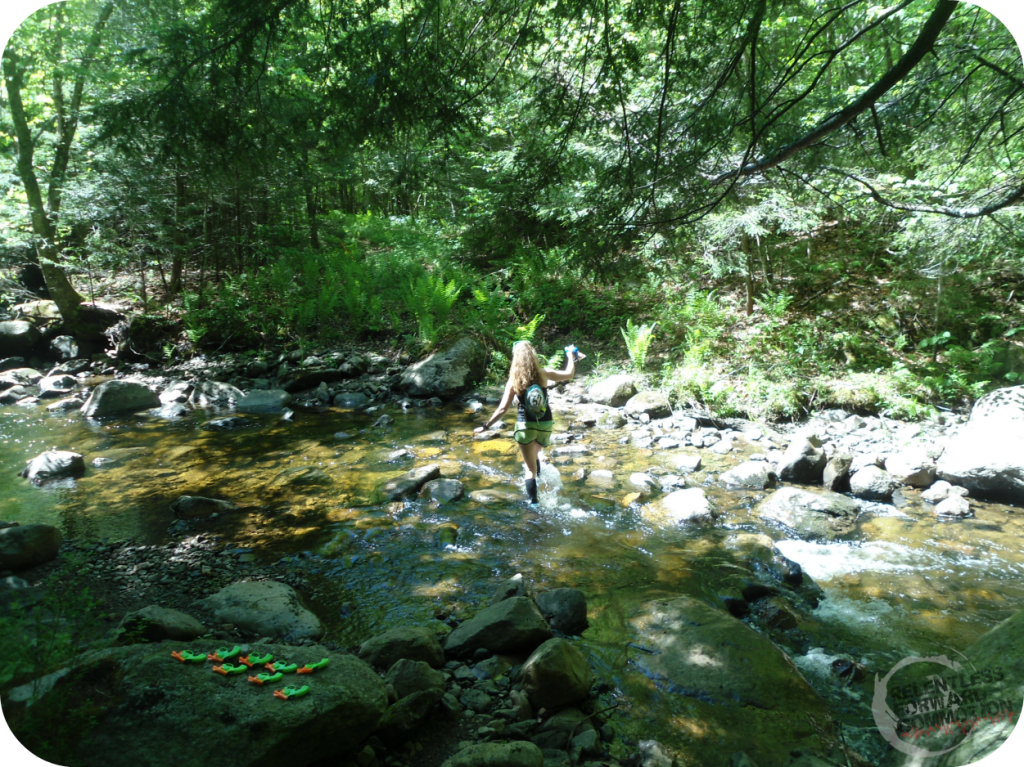
Wet shoes.
After a few more 50K’s, I made my second 100 mile attempt that again ended just past the 50 mile mark, where I learned the importance of pacing (more specifically, not being an asshole and going out to fast).
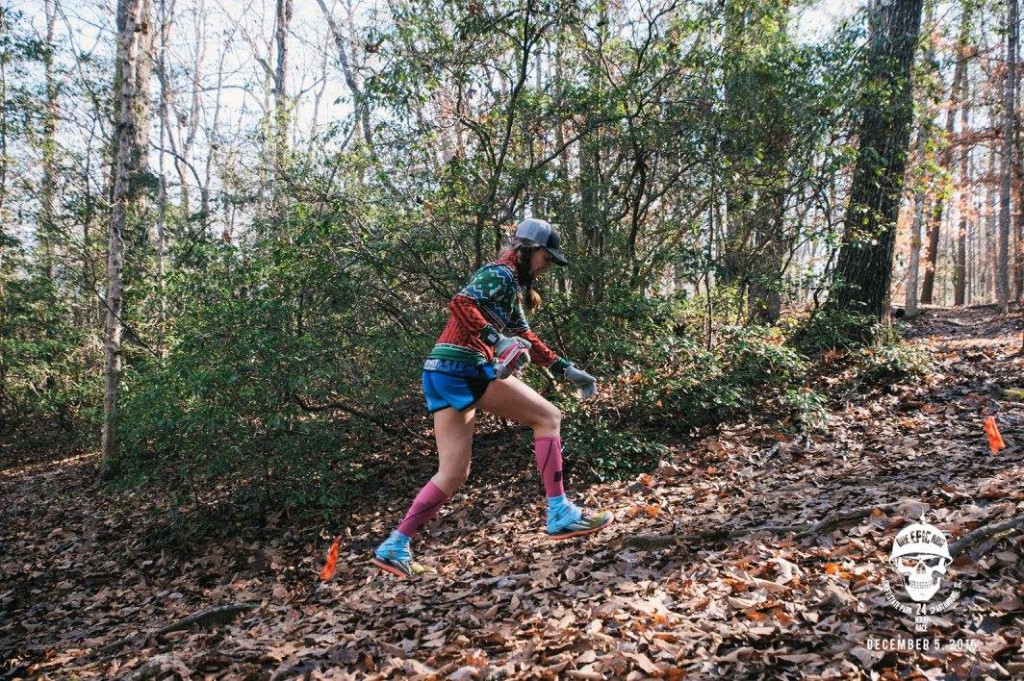
I convinced myself I could throw down a 24 hour 100 on my first finish. Ha.
My next 100 mile attempt ended at 100K, where I learned the art of mentally powering and pushing through the discomfort, and for the first time faced the realization of how FAR 100 miles really is. I’ll never forget feeling so proud that I hit the 100K mark, then almost immediately realizing I had nearly FORTY more miles to go to hit 100.
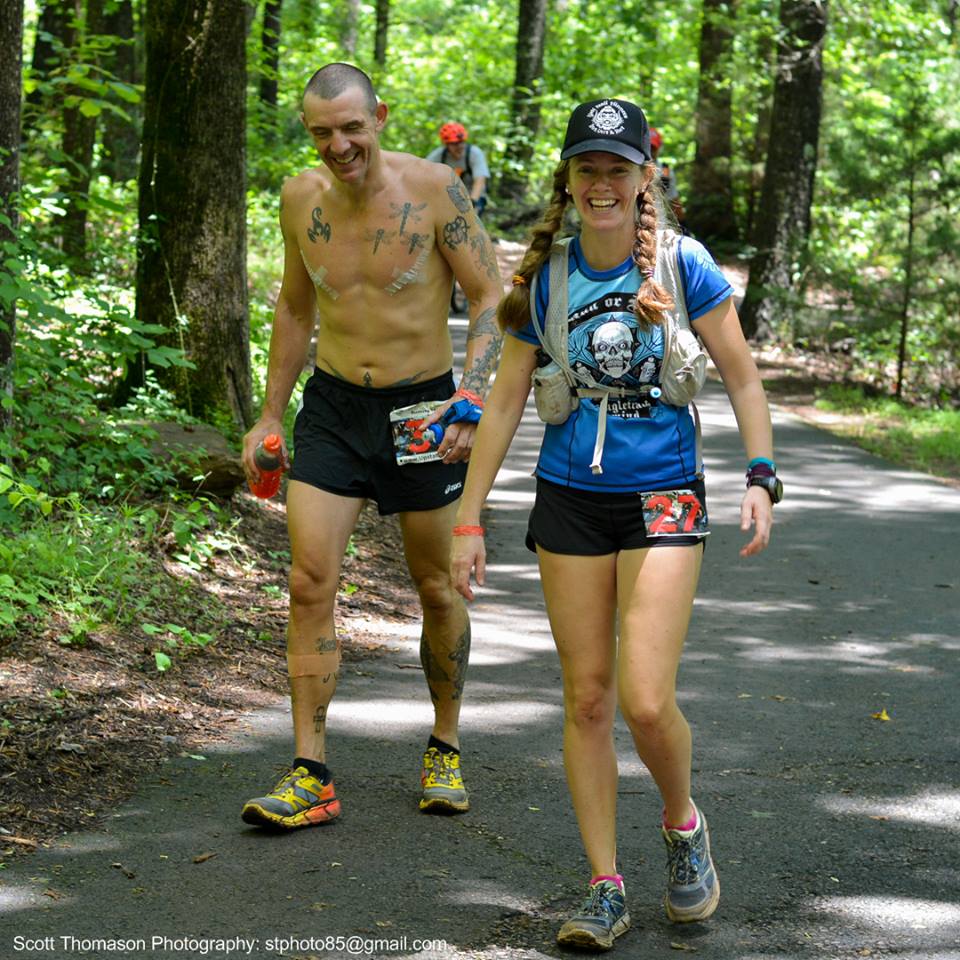
All smiles, happy to call it quits with a new distance PR.
My 4th 100 mile attempt went relatively well, but ended at 84 miles because I ran out of time (it was a 24 hour race). Yet still, I learned so much, including an important reminder of never falling behind on your nutrition, or it will leave you in tears at 4 am, wondering why the stars are spinning in the sky.
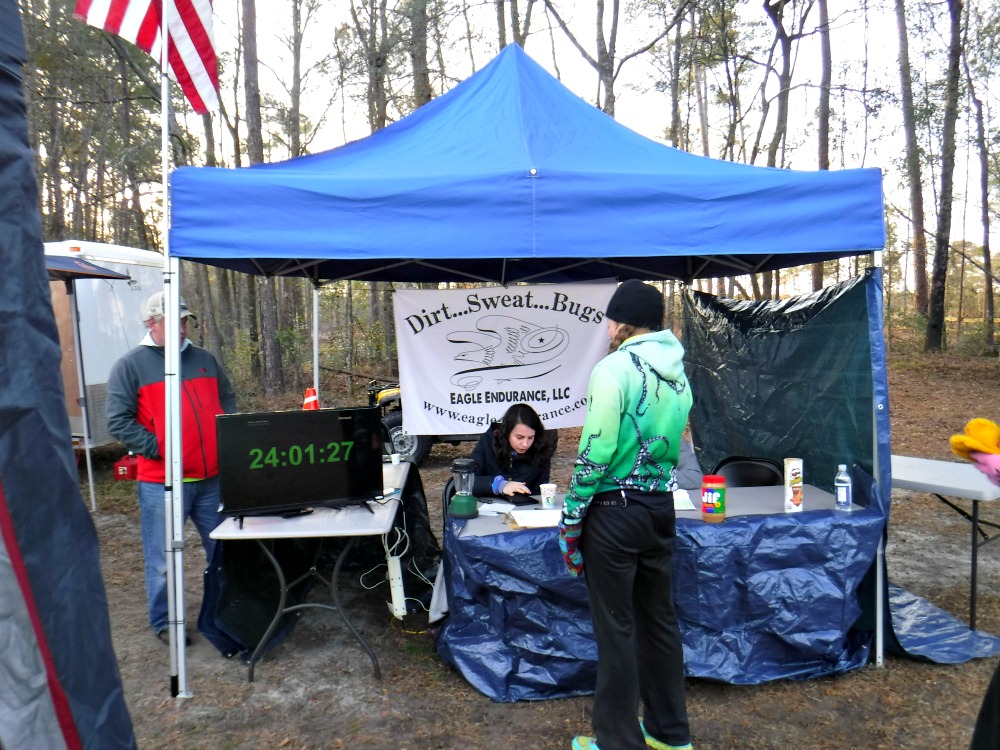
Time’s up.
On my 5th attempt, 100 miles finally happened. Even though it didn’t go down the way I had hoped, I still saw that number on the face of my Garmin (103 miles, to be exact). Again, I learned SO MUCH. Like how to deal when things don’t go your way…and we’re not just talking “plan B”, but more like falling all the way back to “plan F”. I learned the art of sleepwalking. What it’s like to hallucinate on trail. How to keep taking steps when every step hurts in a way you’ve never experienced before. How to shut your trap when your amazing, well meaning friends and family get on your nerves because you’ve been on your feet for 30 hours, fueled only by Tailwind and applesauce.
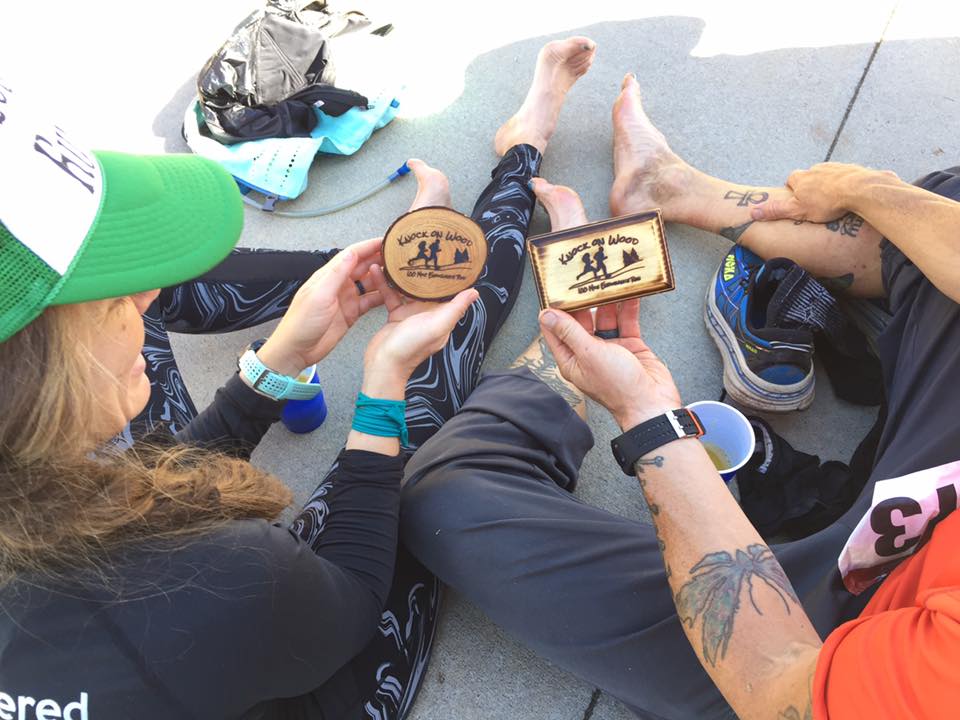
Buckles.
And there is still so much to learn.
I guess my point with this last tip is to really learn to appreciate the art and value of gaining experience. Maybe you’ll finish your 100 miler on your first attempt. Maybe it will take ten attempts. But the best part of ultra running, for me, has been the journey. I know that sounds cheesy and cliché, but I truly wouldn’t trade these experiences for the world.
To sum up this post, how do you train for a 100 miler?
Carefully. Patiently. And with a very open mind, remembering that you are a unique individual, and 100 miles is a long, long way to run. But if you truly believe you can do it…you will.
(In my next post, I’ll actually share the training plan I used for my first finish. Stay tuned)
Heather Hart is an ACSM certified Exercise Physiologist, NSCA Certified Strength and Conditioning Specialist (CSCS), UESCA certified Ultrarunning Coach, RRCA certified Running Coach, co-founder of Hart Strength and Endurance Coaching, and creator of this site, Relentless Forward Commotion. She is a mom of two teen boys, and has been running and racing distances of 5K to 100+ miles for over a decade. Heather has been writing and encouraging others to find a love for fitness and movement since 2009.
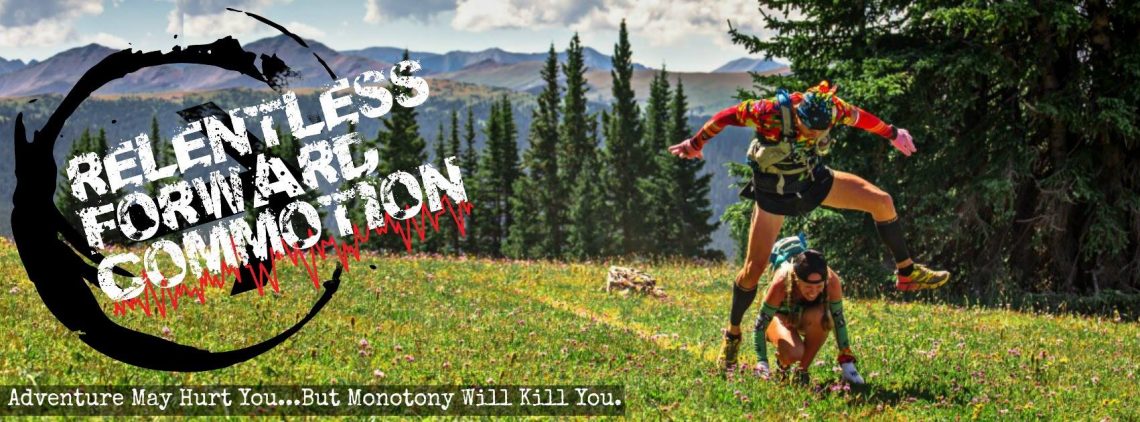
anna maria Drouin
hi,
i am training for my first 100 miler , i found a training plan, and for nutrition, i have yet to figure it out.
i know in my heart with a little bit of guidance i want to finish and can.
i need a bit of guidance……on mileage, and nutrition…would you guide me.I read on post, and you seemed down to earth…
Marci
Great words. I’m dreaming of 100. But just in the beginning phases. 🙂 I loved reading about your journeys.
Heather Hart, ACSM EP-C
All in due time! You’ll get there! The journey to get there is half of the amazing experience!! Thank you so much for reading!
Angela
Nice post, I love your down to earth honesty!